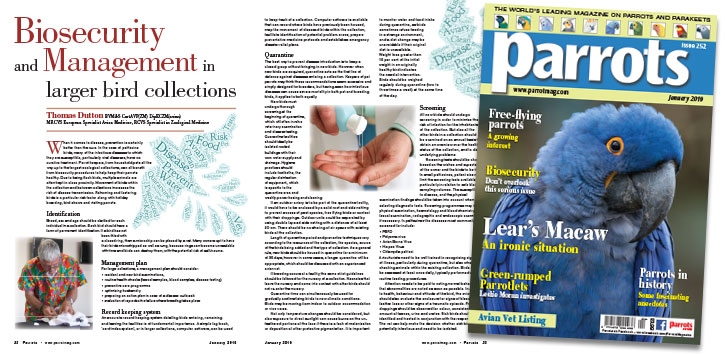
Thomas Dutton BVM&S CertAVP(ZM) DipECZM(avian) MRCVS European Specialist Avian Medicine, RCVS Specialist in Zoological Medicine
When it comes to disease, prevention is certainly better than the cure. In the case of psittacine birds, many of the infectious diseases to which they are susceptible, particularly viral diseases, have no curative treatment. Parrot keepers, from household pets all the way up to the largest zoological collections, can all benefit from biosecurity procedures to help keep their parrots healthy. Due to being flock birds, multiple animals are often kept in close proximity. Movement of birds within the collection and between collections increases the risk of disease transmission. Rehoming and fostering birds is a particular risk factor along with holiday boarding, bird shows and visiting parrots.
Breed, sex and age should be clarified for each individual in a collection. Each bird should have a form of permanent identification. If a bird has not been fitted with a closed ring, then a microchip can be placed by a vet. Many owners opt to have their birds microchipped as well as rung, because rings can become unreadable with time and birds can destroy them, with the potential risk of self-trauma.
Buy Now!
